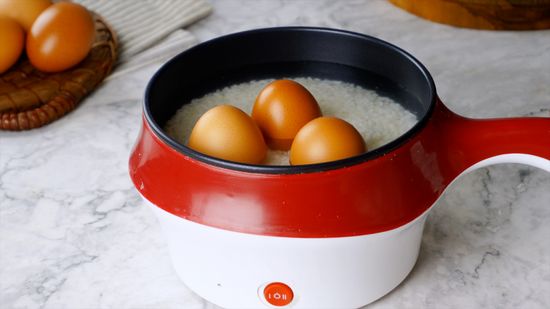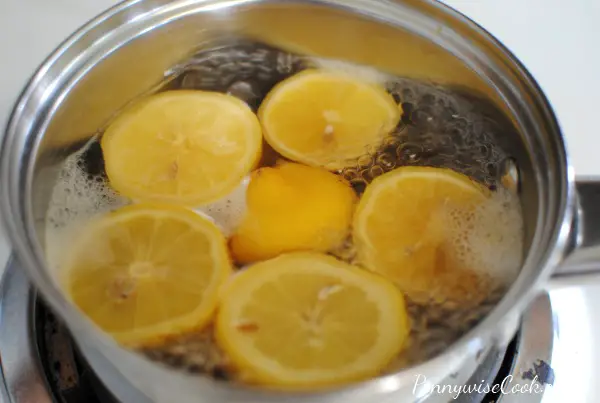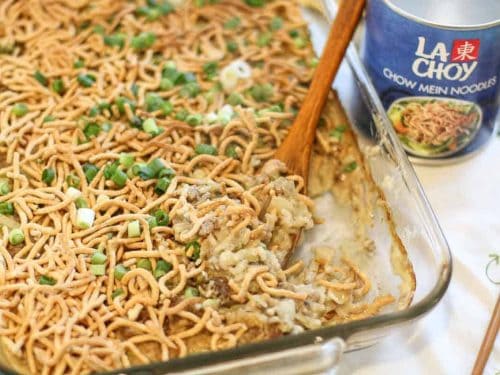Boiling rice and eggs together is a common practice in many households. Rice and eggs are a staple food for people all around the world. But is it safe to boil them together? This article examines the safety of boiling eggs with rice, food safety measures, risks associated with consuming poorly cooked eggs, egg preparation methods for safe consumption, recommended temperature settings for different egg preparations, feasibility and nutritional value of boiling rice and eggs together, and sanitation practices.
How is Food Safety Measured?
Food safety refers to the measures taken to ensure that food does not pose a health risk to consumers. Safe food should be free from contaminants such as bacteria, viruses, parasites, toxins, chemicals or foreign bodies that may cause illnesses or diseases. The standards set for food safety include hygiene practices during processing, handling and storage of foods.
Factors that determine food safety include:
- The type of food being prepared
- The source of the ingredients
- Temperature control during preparation
- Sanitation practices
Risks Associated with Consumption of Badly Cooked Eggs
Eggs are one of the most commonly consumed foods worldwide. Poorly cooked eggs have been shown to carry germs such as Salmonella enterica serotype Enteritidis that can cause serious health issues when consumed.
Salmonella enterica serotype Enteritidis is found in raw and undercooked egg products; this bacterium can be killed by proper cooking techniques. Consuming raw or undercooked eggs may lead to salmonella poisoning which manifests through symptoms like fever, diarrhea, vomiting, and abdominal pain.
It is crucially important to prepare eggs carefully before consuming them as any errors can expose individuals to serious diseases.
Preparation Methods for Safe Cooking and Consumption of Eggs
Hard Boiled Eggs Preparation Method
Hard-boiled eggs require:
- A large pot or saucepan
- Fresh water
- Large spoon
- Timer
- Large bowl of cold water
Steps to follow:
- Place eggs in a pot or saucepan
- Fill the pot with fresh water, making sure to cover the eggs by an inch
- Bring the pot or saucepan to a boil, then reduce the heat to medium-low and simmer for 9-12 minutes
- Once finished cooking, use a large spoon to remove eggs from the pot or saucepan and place them in a bowl of water for cooling
- Allow the eggs to cool before peeling.
Soft Boiled Eggs Preparation Method
Soft-boiled eggs require:
- A large pot or saucepan
- Fresh water
- Timer
- Large bowl of cold water
Steps to follow:
- Fill a medium-sized pot with fresh water – enough to cover at least two whole eggs
- Bring the pot or saucepan to a gentle boil
- Gently add your eggs using either tongs or a slotted spoon
- Cook for approximately five minutes for runnier yolks and longer if wanted slightly more firm. Once finished cooking use a slotted spoon to remove eggs from the boiling water and place them in cold running tapwater until cool.
Poached Eggs Preparation Method
Poached eggs require:
- A large pot or pan with deep edges
- Fresh Water
- Vinegar -Timer (optional)
Steps to follow:
Fill up your large sized shallow dish with 1/2 inch tap heating low level on stove. once it reaches boiling points gently lower 2 poach egg pie plates inside filled each luncheon meat tin sized dishes half full with mixture of 2 teaspoons vinegar rolled together with salt. Add preference like sliced tomatoes then waiting till cooked through( about 3 -5 min). Then scoop it out & let it dry.
Is it Safe to Boil Rice and Eggs Together?
Boiling rice and eggs together is safe; it is a convenient way of combining two foods into one preparation. However, there are progressive risks associated with boiling the two together since both require different boiling times and cooking methods.
Feasibility of Boiling Rice and Eggs Together:
Boiling rice and eggs together may not be feasible since rice needs continuous boiling for 20-30 minutes, while eggs only need to cook for around 5-10 minutes or as per preferred hardness.
Nutritional Value of Boiling Rice and Eggs Together:
Rice and eggs have nutritional value on their own, but when boiled together, they still retain their respective nutrients. In fact, it can be an excellent source of protein if consumed in moderation.
Buying Fresh Ingredients and Sanitation Practices
When buying ingredients like eggs and rice for boiling purposes, sanitation is important. Check the selling date on the egg carton; any outdated ones should not be purchased. Before purchasing examine its quality by seeing if there is any cracks that might have appeared on the egg shells’ surface. After purchasing always store them in a refrigerated area until ready to use.
Recommended Temperature Settings for Different Egg Preparations
Different egg preparations require specific temperature settings depending on the method used. Below are temperature guidelines for recommended egg preparation methods:
- Hard-boiled: 185°F (85°C)
- Soft-boiled: 165°F (74°C)
- Poached: Around 160°F (71°C)
Science behind Recommended Temperature Settings for Different Egg Preparations
The science behind the recommended temperature settings is based purely on heat transfer phenomena from external sources into food products which help destroy bacteria along with avoiding overheating or undercooked sides to reach stated product objectives & accomplishing healthy eating standards.
Conclusion
In conclusion, safety regulations when cooking meals are paramount since we all want to eat healthy meals without getting sick. The article has highlighted food safety measures, risks linked to poorly cooked eggs, egg preparation methods, temperature settings for different egg preparations, and the feasibility of boiling rice with eggs.
While boiling rice and eggs together could be convenient, it is important to note that rice requires continuous boiling for about 20-30 minutes, while eggs only take 5-10 minutes of cooking time. With proper food safety measures and adhering to recommended temperature settings for different egg preparations timelines; it is safe to boil rice as well as eggs together at home without any risk of salmonella poisoning or other diseases.
With a little patience, careful preparation and adherence to these guidelines., you can enjoy a healthy and perfectly cooked meal that includes boiled eggs with rice without compromising your health.
Q&A
Q1: Can I boil eggs and rice together in one pot?
A: Yes, you can! Boiling eggs with rice is a common practice in many cultures. It’s an efficient way to cook both ingredients simultaneously, while saving time and energy.
Q2: Is it safe to eat rice that has been boiled with eggs?
A: Absolutely! The combination of boiled eggs and rice is not only delicious but also perfectly safe to eat. As long as the food is cooked thoroughly and kept at a safe temperature, there should be no issues.
Q3: Will boiling eggs with rice affect the taste of the dish?
A: Boiling eggs with rice can actually enhance the flavor of the dish. The naturally occurring fats and oils from the egg yolks infuse into the rice, creating a rich and satisfying flavor. Additionally, using chicken or vegetable broth instead of water can add even more depth to the flavor profile.
Q4: Are there any kitchen safety tips I should follow when boiling eggs with rice?
A: Using caution when handling hot liquids is always important for kitchen safety. Be sure to use a well-fitting lid on your pot to avoid splatters or burns. Also, always wash your hands before handling raw ingredients like eggs and keep them separated from other foods until they are fully cooked.




